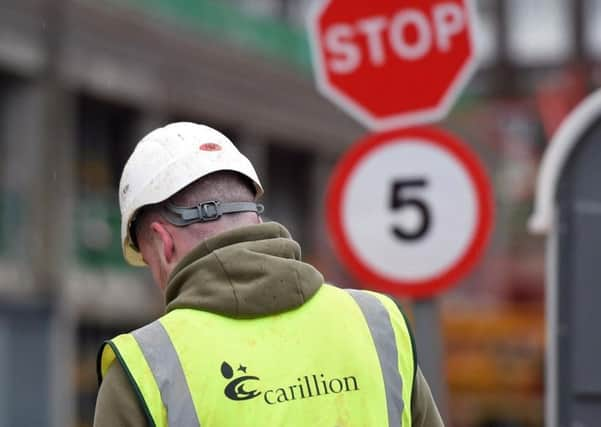Emma Lewell-Buck MP: Carillion collapse shows it's time to end rip-off privatisation policies


Carillion provides services to the Government and local councils in 50 prisons, 9,000 schools, 200 operating theatres and manages over 11,000 hospital beds. With 40% of Carillion’s income paid by the taxpayer, when did the Government first realise that Carillion was in trouble?
After all, it had three chief executive officers in a short space of time, made three separate profit warnings since July 2017 alone and its stock was being subjected to short selling on the stock exchange as far back as 2015.
Advertisement
Hide AdAdvertisement
Hide AdHow can Theresa May’s top team justify £2billion-worth of public contracts – taxpayers’ money – being awarded to Carillion despite knowing all of this?
The Government seems to be looking on as a shocked, innocent bystander in a crisis that it is actually very deeply involved in.
With debts valued at almost £1.5billion, the Government has shown scant regard for our public finances and for the workforce by continuing to procure from a company they knew to be in crisis.
The collapse of Carillion is not only devastating to the 20,000 employees at the firm, those in the supply chain and those who rely on its pension fund, but also has implications for the government contracts which the company holds. The Tories have announced that the Government will pay additional public money, presumably to the liquidator, to carry out vital public service contracts.
Advertisement
Hide AdAdvertisement
Hide AdThere will also be a reverberating effect on supply chain companies with 30,000 sub-contractors owed millions and many of these suppliers facing insolvency because they will receive less than 1p for every pound they are owed.
Big corporations who have benefitted hugely by way of dividends and interest payments in theory shoulder the risk of the projects, but with the taxpayer standing as guarantor in many cases, this has simply been a licence to print money.
The Private Finance Initiative (PFI), which was implemented for the first time in the UK in 1992 by the Conservative Government of John Major, has drained money from our public services for many years, with billions being paid out as dividends to shareholders.
Whilst PFI was often used to deliver much-needed and welcome improvements to our public services, at times it was done so at an unnecessarily high cost and with limited options for redress.
Advertisement
Hide AdAdvertisement
Hide AdIt is time for an end to rip-off privatisation policies that have damaged parts of the public sector and left the taxpayer footing the bill, that is why a Labour Government will not sign any new PFI deals and will look to bring existing contracts back in-house, change procurement rules so that the public sector is the preferred provider for government services and will make delivering local services in house the default option.
Carillon’s collapse has laid bare the false mantra that has permeated for so long, that the private sector and outsourcing for profit is always a better option than the public sector. Labour will ensure that our public services are ran for the many not the profits of the few.